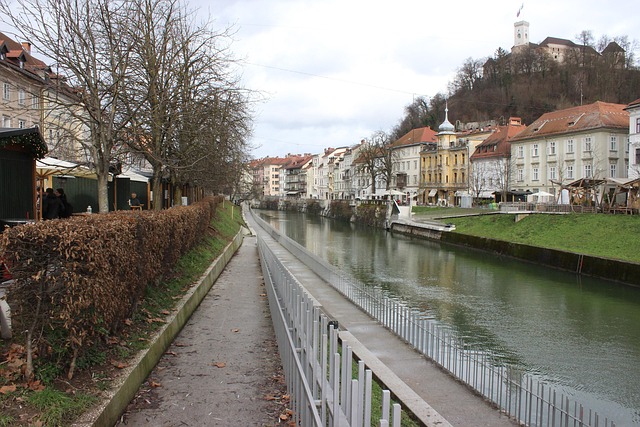Karachi faces persistent electricity load shedding due to outdated infrastructure, inefficient power plants, and high demand. The growing population exacerbates this issue, causing frequent power cuts that disrupt daily life and business operations. Power Distribution Companies (PDCs) manage distribution networks but struggle with peak-hour demands. Residents and businesses adopt backup systems and energy-efficient practices to mitigate load shedding impacts. Karachi is pioneering sustainable solutions, including renewable technologies and smart grids, to address this chronic problem and become a leader in reliable, green energy practices.
In Karachi, electricity load shedding has become a recurring theme, disrupting daily life and impacting businesses. This article delves into the complexities of this issue, exploring its far-reaching effects on residents and enterprises alike. We analyze the role of Power Distribution Companies (PDCs) in managing and mitigating these frequent power outages. Furthermore, it discusses innovative strategies to cope with load shedding and presents a glimpse into Karachi’s future energy solutions, aiming to provide insights for a more stable and resilient power landscape.
- Understanding Electricity Load Shedding in Karachi
- Causes and Effects on Residents and Businesses
- The Role of Power Distribution Companies (PDCs)
- Strategies for Mitigating the Impact During Load Shedding
- A Look into Karachi's Future Energy Solutions
Understanding Electricity Load Shedding in Karachi

In Karachi, electricity load shedding has become a persistent issue, posing significant challenges for residents and businesses alike. This phenomenon refers to the temporary disruption of power supply, often during peak hours, due to an imbalance between the city’s electricity demand and available generation capacity. Karachi, with its rapidly growing population and increasing energy demands, experiences frequent power cuts as the existing infrastructure struggles to keep up.
Load shedding in Karachi is a complex problem influenced by various factors. The primary reason is the gap between the rising energy requirements of its citizens and the limited electricity generation and distribution capabilities. This issue is further exacerbated by old and inefficient power plants, inadequate transmission networks, and high energy consumption patterns. As a result, power disconnections become a common occurrence, impacting daily routines and economic activities across the city.
Causes and Effects on Residents and Businesses

In Karachi, electricity load shedding has become a recurring issue, significantly impacting residents and businesses alike. The primary causes include inadequate power generation infrastructure, increasing demand during peak hours, and frequent technical failures. This results in prolonged periods of power cutoffs, disrupting daily routines and hindering productivity.
The effects are far-reaching, with residents facing difficulties in lighting their homes, operating essential appliances, and even accessing basic amenities like cooling or heating systems. Businesses, on the other hand, suffer from interrupted operations, loss of productivity, and sometimes, financial losses due to downtime. This chronic issue has led to a growing sense of frustration among the population, emphasizing the need for sustainable solutions to ensure a reliable power supply in the vibrant city of Karachi.
The Role of Power Distribution Companies (PDCs)

In Karachi, the power distribution landscape is managed by several key players, with Power Distribution Companies (PDCs) playing a pivotal role in ensuring electricity reaches consumers smoothly. These companies are responsible for the distribution network, maintenance, and overall management of power supply within their designated areas. In the face of growing energy demands, particularly during peak hours or in hot seasons, PDCs in Karachi must balance the load to prevent overburdening the system, which often leads to power outages or ‘load shedding’.
Their primary objective is to provide reliable electricity while maintaining grid stability. To achieve this, PDCs employ advanced technologies for monitoring and controlling power flow, implement smart grid solutions, and regularly upgrade infrastructure. By efficiently managing distribution, these companies contribute significantly to the city’s overall energy security and ensure residents and businesses in Karachi have access to uninterrupted power supply.
Strategies for Mitigating the Impact During Load Shedding

In Karachi, where power outages are a frequent occurrence, residents and businesses have had to adapt with innovative strategies to mitigate the impact of load shedding. One effective approach is to invest in backup power solutions like generators or solar panels. These systems ensure continuity in essential operations during power cuts, minimizing disruption to daily routines and business productivity.
Additionally, implementing energy-efficient practices can significantly reduce electricity consumption. This includes using LED lighting, optimizing heating and cooling systems, and adopting smart appliances that are designed to conserve energy. By embracing these measures, Karachiites can contribute to a more stable power grid and better prepare for unpredictable load shedding schedules.
A Look into Karachi's Future Energy Solutions

Karachi, as one of Pakistan’s major urban centers, faces unique challenges in meeting its burgeoning energy demands, particularly with regard to electricity load shedding. However, the city also represents a vibrant frontier for future energy solutions. Renewable energy sources like solar and wind power are gaining traction, thanks to advancements in technology and decreasing costs. Initiatives such as large-scale solar farms and rooftop installations are being explored to diversify Karachi’s energy mix and reduce reliance on traditional fossil fuels.
Smart grid technologies are another promising avenue. Implementing advanced metering infrastructure and data analytics can optimize energy distribution, improve efficiency, and enhance the overall reliability of the power supply. These innovative solutions not only promise to alleviate the issue of load shedding but also position Karachi as a leader in sustainable energy practices, setting an example for other urban areas across the country.
Electricity load shedding in Karachi, while a persistent challenge, offers opportunities for growth and innovation. By understanding its causes, mitigating its impacts, and embracing future energy solutions, the city can move towards a more reliable and sustainable power supply. The collaborative efforts of residents, businesses, and Power Distribution Companies (PDCs) are crucial in navigating this complex issue, ensuring Karachi’s vibrant and resilient future.
